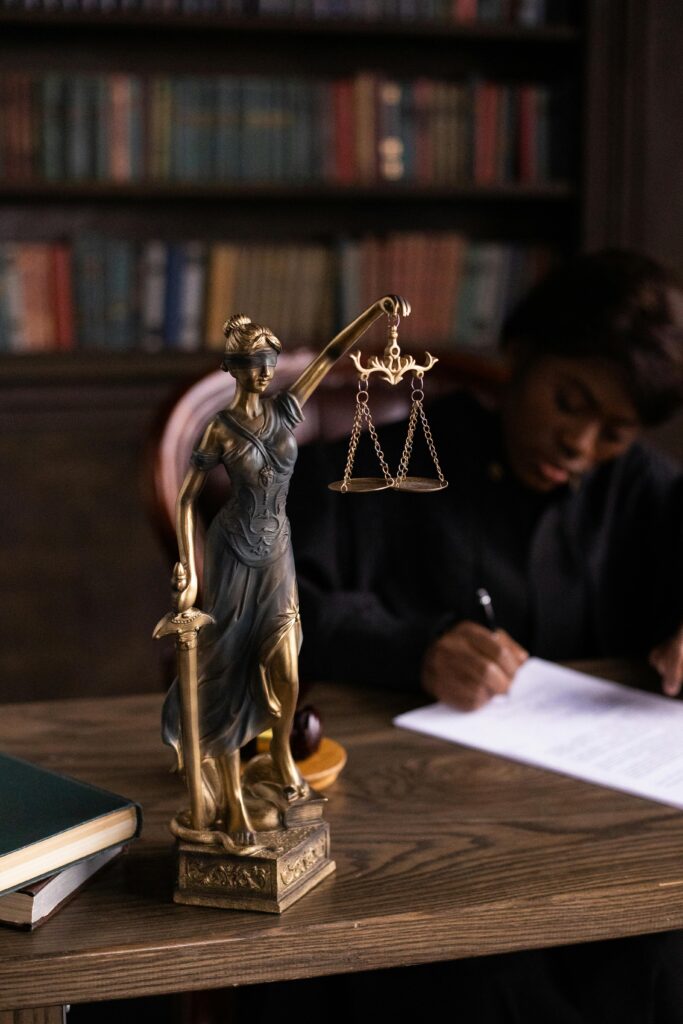Published on: 6th November 2024
Authored by: Vandna Singh
Kazi Nazrul University
Citation(s): 1965 AIR 1039, 1965 SCR (1) 375
Court: Supreme Court of India
Parties: Kasturilal Ralia Ram Jain (Petitioner), The State of Uttar Pradesh (Respondent)
Bench: Former Chief Justice of India PB Gajendragadkar, Justice Kailas Nath Wanchoo, Justice Mohammad Hidayatullah, Justice J.R. Mudholkar, Justice Mahendra Dayal, Justice Raghubar Dayal.
Judgement Date: September 29th, 1964
Facts of the case:
[1]The case of Kasturilal Ralia Ram Jain v. The State of Uttar Pradesh involves the doctrine of sovereign immunity, its implications on the common man, and vicarious liability. Kasturi Lal, a partner in a jewelry firm, traveled to Meerut to sell gold, silver, etc., but was taken into custody on suspicion of possessing stolen goods. He was found with over 103 tolas of gold, 6 mashas and 1 ratti, 6 1/2 seers, and over 2 maunds of silver. His property was seized, and he was also detained. Kasturi was released the next day on bail, but his property was not returned to him. While he did get back his 2 maunds of silver, he never received his gold. Kasturi repeatedly demanded the return of his gold and later filed a lawsuit when his demand was not met, claiming compensation of around Rs 11,075. The state responded to these allegations by stating that they were not responsible for the misplacement of the gold. The gold had been in the custody of Head Constable Mr. Mohammad Amir, who later fled to Pakistan with the gold and other items.
[2]Issues raised:
- Were the police officers guilty of negligence for the misplacement of Kasturi’s goods?
- Were the police officers liable to pay compensation for the same?
[3]Petitioner’s arguments:
The petitioner argued that the Allahabad High Court made a grievous mistake in their judgment with regards to both issues. He emphasized that, despite Kasturi’s repeated demands for his gold, his requests were not fulfilled. The petitioner cited the case of [4]State of Rajasthan v. Mst. Vidhyawati (1962), where the apex court held that the state is responsible for compensating for damages caused by a government-owned vehicle. The court also criticized the concept of “the king could do no wrong,” which is a concept closely associated with sovereign immunity.
Respondent’s arguments:
The respondent’s argument centred on the fact that they had already taken action against Mohammad Amir, who was responsible for the misplacement. The respondent further emphasized that even if negligence on the part of the police officers is considered, the state cannot be held liable, as the officers were merely carrying out their official duties.
Relevant key legal provisions:
The key legal provisions involved in this case are as follows:
- [5]Section 29 of The Police Act, 1861
- This provision was included in the case because the misplacement occurred under police custody. The Police Act outlines the responsibilities and duties that are mandatory for police officers and includes penalties for breaches of those duties. Section 29 holds any police officer accountable if found guilty of a violation of duty or breach of conduct. Such an officer shall be liable to be convicted before a Magistrate and punished with a fine equivalent to three months’ pay or imprisonment with or without hard labor for a minimum of three months. Since a breach was observed in the case of Kasturilal Ralia Ram Jain vs. The State of Uttar Pradesh, this section was invoked.
- [6]Section 41(1)(c) of the Criminal Procedure Code, 1973
- This section permits the arrest of a person if they are found under suspicion of carrying stolen goods.
- [7]Section 102(1) of the Criminal Procedure Code, 1973
- This section grants police officers the authority to seize the goods of a person suspected of possessing stolen materials. It was cited by the respondent to justify the seizure.
- [8]Section 457 of the Criminal Procedure Code, 1973
- This section outlines the procedure that must be followed by police officials once a property is under their custody. It was mentioned in the proceedings as it deals with post-custody procedures.
- [9]Section 409 of Indian Penal Code, 1860
- This section pertains to the punishment for breach of duty by a public servant entrusted with property. A case against Head Constable Mr. Mohammad Amir, who fled to Pakistan with Kasturi’s belongings, was registered under this section.
Court’s Decision:
Issue 1: Were the police officers guilty of negligence for the misplacement of Kasturi’s goods?
[10]The concept of negligence is a matter addressed under the law of tort. The question at hand was whether the police officers were culpable for the negligence that led to the misplacement of Kasturi’s belongings. The Apex Court considered the following witness testimonies:
- Ganga Prasad (Class II Officer): Ganga Prasad testified that Head Constable Mohammad Amir, who fled to Pakistan with Kasturi’s belongings, did not hand over any keys to the Malkhana. He noted that no proper list or adequate care was maintained for the seized items. It was also revealed upon inspection that Mohammad Amir absconded with additional items from the Malkhana.
- Sub-Inspector Mohd Umar: Mohd Umar confirmed that Kasturi’s gold was indeed seized but stated that the gold never entered the Malkhana in his presence. He also mentioned that despite requesting the Head Constable, no proper list or adequate care was provided for the seized items.
- Station Officer Agha Badarul Hasan: Officer Agha testified that the Malkhana underwent daily inspections but noted that no proper list was maintained for Kasturi’s items. He also claimed that no appropriate orders were issued to safeguard the items, contrary to standard procedure.
Based on the aforementioned testimonies of these witnesses, the Apex Court held that there was clear evidence of negligence by the police officers. Not only they failed to secure Kasturi’s belongings but also neglected proper documentation for the same.
Issue 2: Were the police officers liable to pay compensation for the same?
The court held that the petitioner’s claim could not be upheld as it pertained to an employment matter and the exercise of sovereign powers, a principle reinforced by the Chief Justice in the 1861 decision. The Apex Court also stated that if a person’s belongings were seized for lawful reasons, a redressal claim for their misplacement cannot be made against the state. Consequently, the appeal was dismissed.
[11]Reasoning of the Court:
The court’s reasoning centred on the concept of sovereign immunity, which grants specific powers to government servants. Consequently, the petitioner’s claim could not be upheld as it involved an employment matter and the exercise of sovereign powers, a principle reinforced by the Chief Justice’s 1861 decision. The Apex Court also stated that if a person’s belongings were seized for lawful reasons, a claim for redressal due to their misplacement cannot be made against the state. Therefore, the appeal was dismissed.
[12]Impact and Significance:
This case has been cited over 50 times in matters related to the concept of sovereign immunity. The judgment has faced criticism as Kasturilal was not granted redress for the damages he suffered, despite the police officers being held liable. Although the concept of sovereign immunity has evolved in India over time, this case remains a significant reference in discussions on sovereign immunity and vicarious liability.
Critical Analysis:
[13]What happened to Kasturilal was neither just nor fair. The judgement of this case hence faced a lot of criticism. The concept of sovereign immunity and the powers granted to public servants are designed to protect public interest and safety, even if they result in some collateral damage. However, these powers should be limited. In the case of N. Nagendra Rao & Co. v. State of Andhra Pradesh (1994), where the plaintiff’s goods were seized and some were later found damaged while in police custody, the Apex Court ruled that the state cannot claim immunity when the actions of its employees are not related to sovereign functions. Since the Kasturilal Ralia Ram Jain case, India has made significant progress in expanding upon the definition of sovereign immunity. The concept is now better defined, and laws governing government servants have been made stricter to ensure fairness in the legal system.
References:
[1] Kasturilal Ralia Ram Jain vs The State Of Uttar Pradesh 1965 AIR 1039, 1965 SCR (1) 375.
[2] [IP LEADERS], [https://blog.ipleaders.in/kasturilal-ralia-ram-jain-vs-the-state-of-uttar-pradesh-1964/#Significance_of_the_case],[((last visited September 12, 2024)].
[3] [Indian Kanoon], [https://indiankanoon.org/doc/1199558/], [((last visited September 12, 2024)].
[4] [Indian Kanoon], [https://indiankanoon.org/doc/1765956/], [((last visited September 12, 2024)].
[5] The Police Act, 1861, § 29, 1861 (India).
[6] The Criminal Procedure code, 1973, § 41, No. 1, C, 1861 (India).
[7] The Criminal Procedure code, 1973, § 102, No. 1, 1861 (India).
[8] The Criminal Procedure code, 1973, § 457, 1861 (India).
[9] The Indian Penal Code, 1860, § 409, 1860 (India).
[10] [Srishti Chawla], [Negligence In Law Of Torts], [IP Leaders] [((Sep 12, 2024, 10:29 AM))], [https://blog.ipleaders.in/negligence-in-the-law-of-torts/].
[11] [Om Ram], [Kasturi Lal Ralia Ram Jain v State of UP Case Summary 1965], [Law Planet] [((Sep 12, 2024, 10:30 AM))], [https://lawplanet.in/kasturi-lal-ralia-ram-jain-v-state-of-up/].
[12] [Sri Ram], [DOCTRINE OF SOVEREIGN IMMUNITY IN INDIA], [SriRam’s IAS] [((Sep 10, 2024, 10:30 AM))], [https://www.sriramsias.com/upsc-daily-current-affairs/doctrine-of-sovereign-immunity-in-india/#:~:text=Sovereign%20immunity%20is%20a%20legal,done%20in%20its%20sovereign%20capacity.&text=1.,immune%20from%20lawsuits%20in%20India.].
[13] [Khushi Malviya], [Kasturi Lal v. State of UP: Concept of Sovereign Immunity], [Lawctopus] [((Sep 10, 2024, 10:30 AM))], [https://lawctopus.com/clatalogue/ailet-pg/kasturi-lal-concept-of-sovereign-immunity/].




